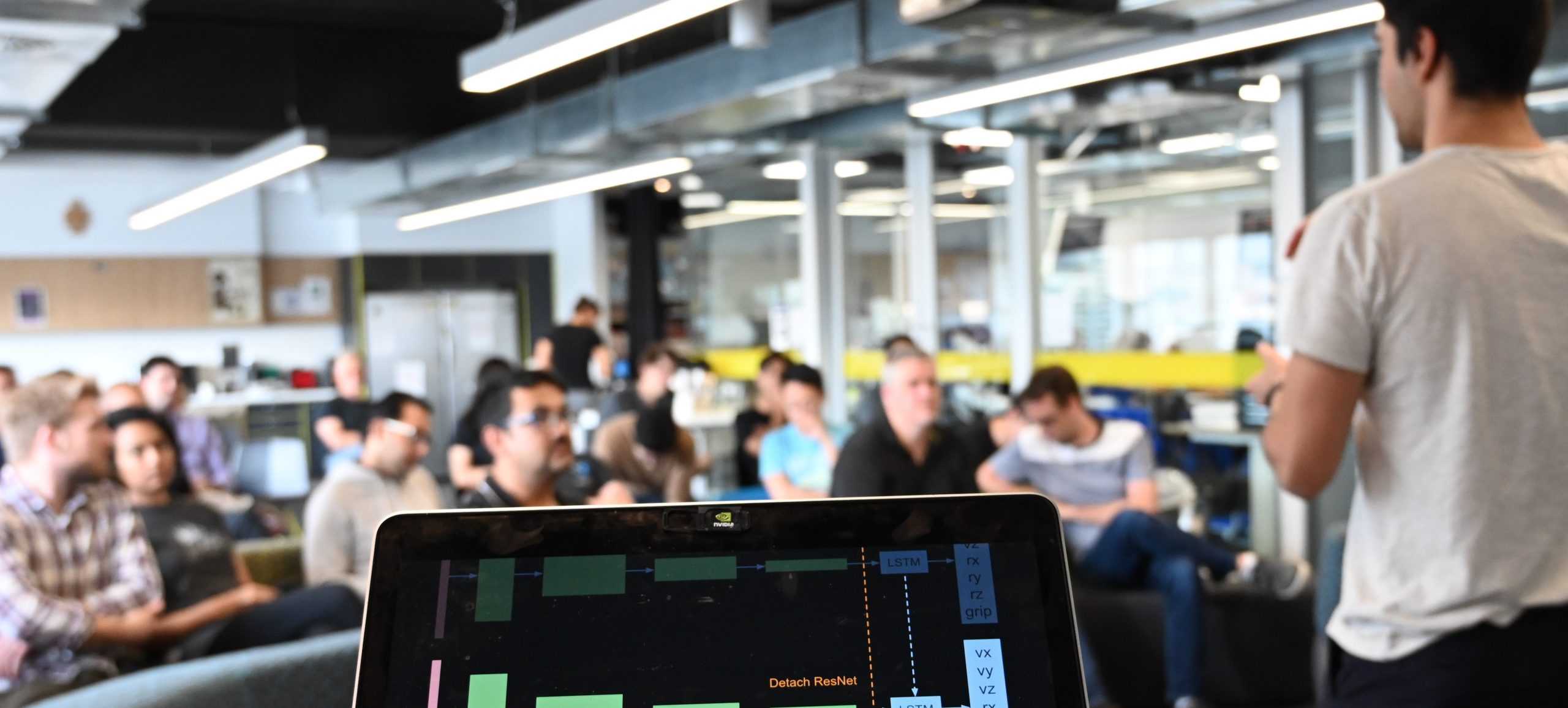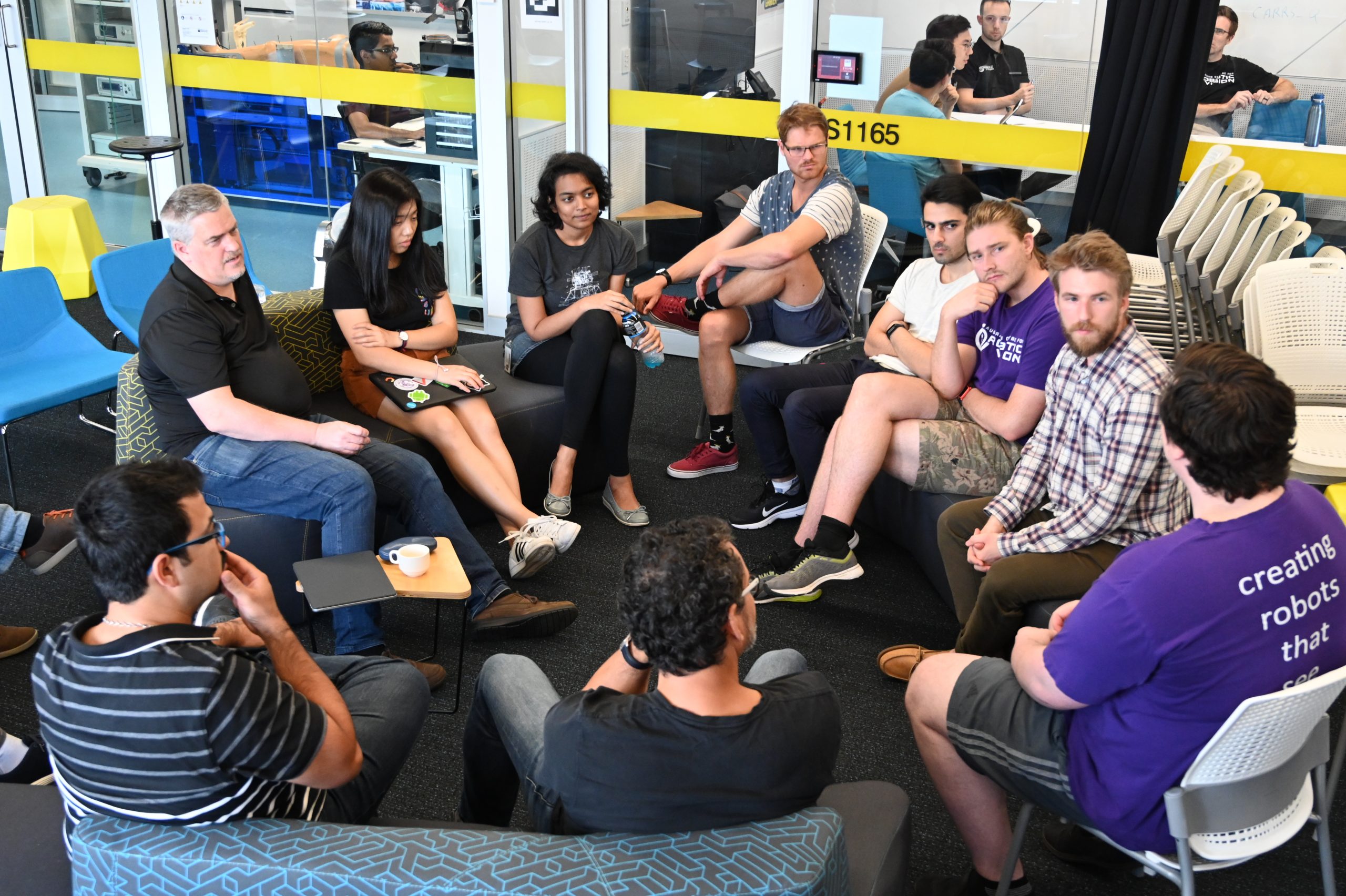Research Training

The Centre is committed to providing high-quality postgraduate and postdoctoral training environments for the next generation of researchers and research leaders.
As a Centre of Excellence, we have an important remit from the Australian Research Council to provide high-quality postgraduate and postdoctoral training environments for the next generation of researchers and research leaders. Since inception in 2014, we have strategically chosen to devote as much of the Centre’s personnel budget as possible to our research training through our knowledge leadership program. To date we have run over 16 knowledge leadership workshops, 34 individual coaching sessions, and offered targeted training presentations at our RoboVis annual symposiums.
The objectives of our research training program are to:
- Develop and support the next generation of robotic vision experts
- Prepare our leaders for diverse career pathways
- See our graduates and alumni form new companies in Australia’s emerging robotic vision industry and give them the skills and support they need to take robotic vision to the world.
The Centre’s research training program focuses on 5 key areas: careers, entrepreneurship (start-up), knowledge leadership, project management, and media training.
Our 2019 knowledge leadership program delivered 26 individual leadership profiling and coaching sessions to our research fellows and research engineers. These sessions were facilitated by workplace psychologists Evexia who the Centre has partnered with since 2016 to deliver its knowledge leadership program. Participants undertook a leadership profile survey and then completed a 1:1 coaching session with a registered psychologist.
The training component of this year’s RoboVis annual symposium targeted at our PhD researchers and Research Fellows was focused on careers and consisted of talks from four Centre speakers including three of our Alumnus.
Dr Viorela Ila, former research fellow and now senior lecturer with the Centre for Robotics and Intelligent Systems at the University of Sydney, spoke about a career in Academia. Representing Small and Medium size Enterprises (SMEs) former research fellow Dr Vincent Lui spoke about his experience as a software engineer working at Sentient Vision systems in Melbourne. PhD graduate Dr Fangyi Zhang shared his insight of the corporate world working as an Algorithm Expert and Research Scientist at Alibaba in China. Research Fellow Dr Juxi Leitner shared his journey in the start-up space and his company Lyro Robotics.
Throughout 2019, Centre Communications Specialist Shelley Thomas worked with individual researchers to prepare for media interviews and opportunities including print, TV, and radio. QUT hosted News limited Journalist Kate Kyriacou to talk to the group on how to effectively engage with the media, and how the media industry has changed and continues to evolve. Kate provided advice on good media hooks; how science and technology stories rank on a news list (and how to boost them), the importance of planning for an interview, do’s and dont’s, and how to keep your cool in front of a camera.
All Centre researchers are part of research project and demonstrator teams and gain first-hand experience in project management through them. The Centre conducts project and demonstrator reviews twice a year where a member of the Centre Executive acts as the project reviewer and evaluates the performance, efficiency and effectiveness of the project and team, and makes recommendations for future focus and milestones. Team members including PhD Researchers, Research Fellows and Investigators present their research to date and the future direction of their work, and how this links to the Centre’s mission. Project teams meet regularly via Zoom videoconferencing and document their project milestones and progression in the Centre’s wiki, Confluence.
